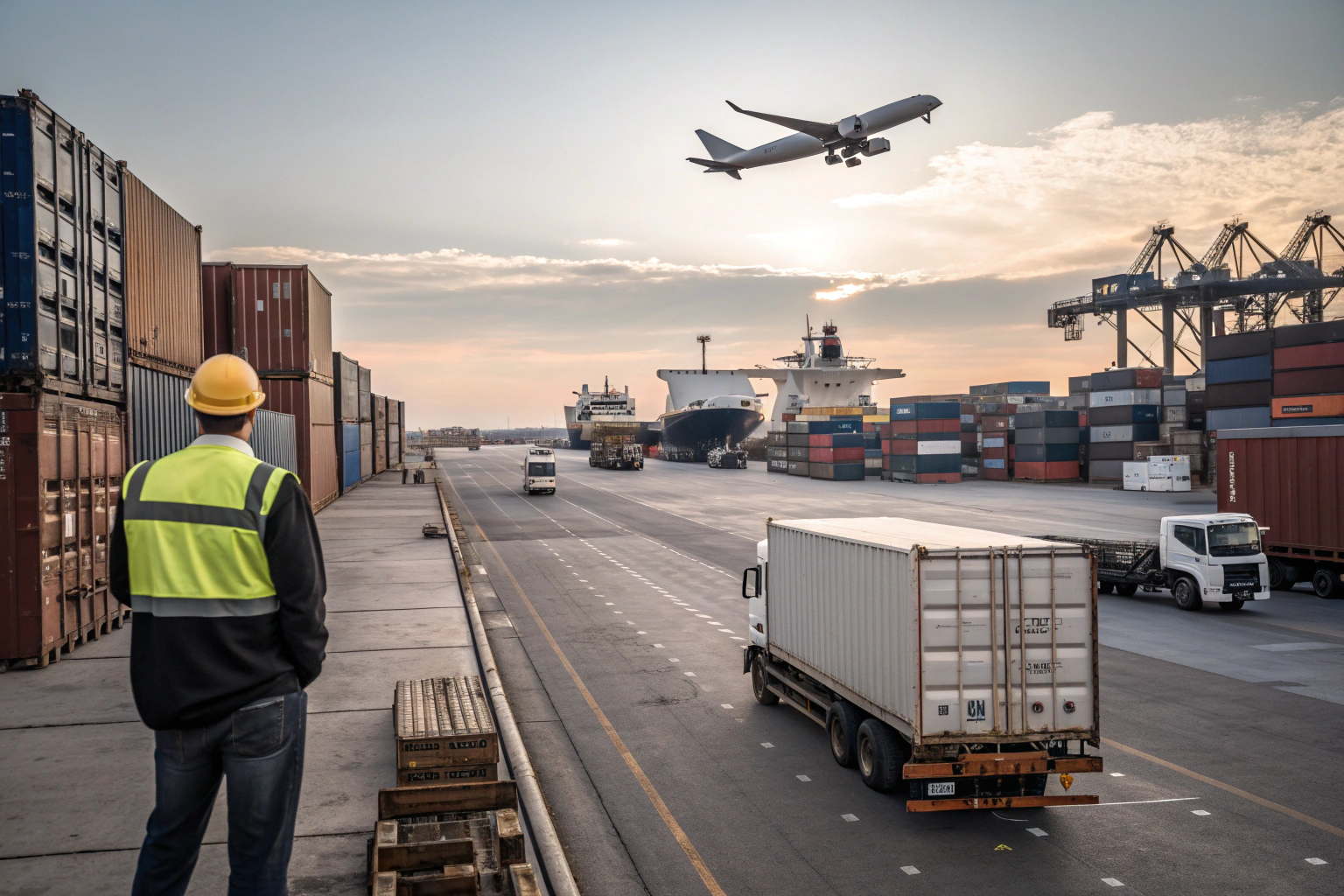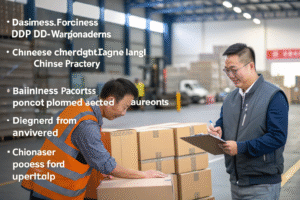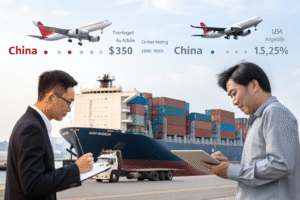Global trade depends on the smooth flow of goods. You might be wondering how freight forwarding fits into your supply chain. At first glance, it may look like just arranging transport, but in reality, freight forwarding influences every stage of your logistics process. From production planning to final delivery, forwarders determine whether shipments are fast, affordable, and reliable.
Freight forwarding influences supply chains by improving efficiency, managing risks, lowering costs, and enhancing visibility. What needs to be emphasized here is that a good forwarder does not just move goods—they create stability in your business operations.
Let’s take a moment to think this through together: when freight forwarding is managed correctly, you gain predictability, stronger customer trust, and a competitive edge in the market.
How Do Freight Forwarders Improve Efficiency?
You might be asking yourself, “How do forwarders actually make supply chains more efficient?” The answer lies in coordination.
Freight forwarders improve efficiency by streamlining transportation, consolidating shipments, and handling customs clearance. What needs to be emphasized here is that these actions reduce delays and save valuable time.
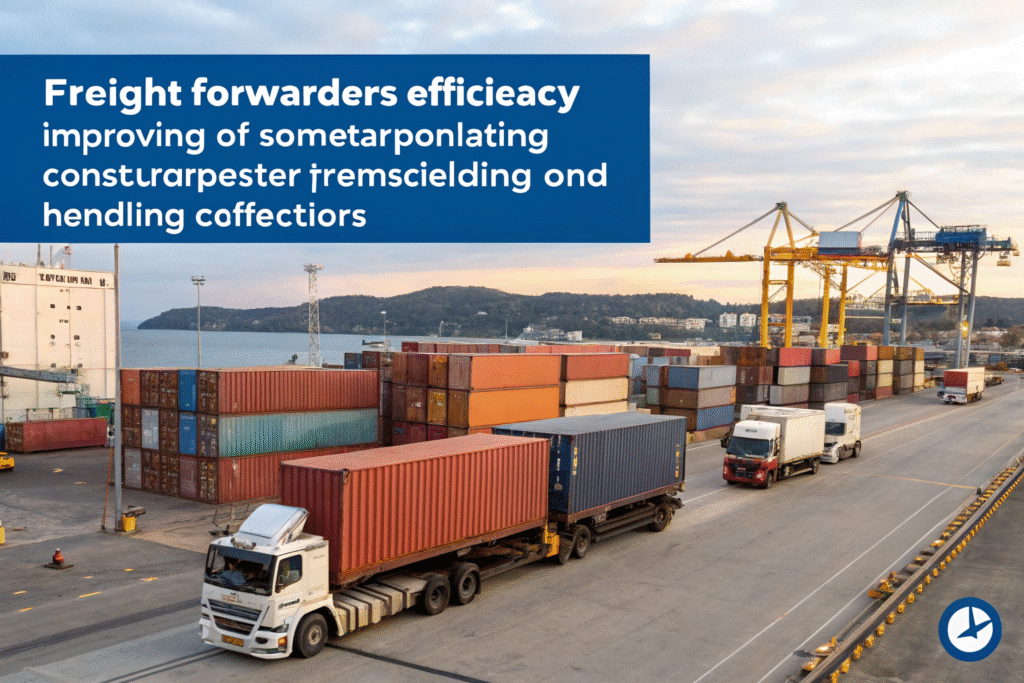
How does shipment consolidation save time and money?
Let’s take a moment to think this through together. Instead of shipping small loads separately, forwarders combine them into full containers. This reduces per-unit costs and speeds up processing. According to Freightos, consolidation is one of the best ways to optimize cargo flow. You might be wondering how this impacts your supply chain—it means faster deliveries and lower costs.
Why does customs clearance expertise matter?
You might be wondering why customs slows down so many shipments. The truth is, paperwork errors and tariff misclassification create major delays. With expertise from licensed brokers, forwarders use resources like U.S. Customs and Border Protection to keep cargo moving. What needs to be emphasized here is that smooth clearance equals smoother supply chains.
How Do Freight Forwarders Manage Supply Chain Risks?
You might be wondering, “What happens when something goes wrong in shipping?” Risks include port strikes, weather disruptions, or sudden tariff changes.
Freight forwarders manage risks by preparing contingency plans, monitoring global updates, and offering cargo insurance. What needs to be emphasized here is that risk management protects your business from unexpected losses.
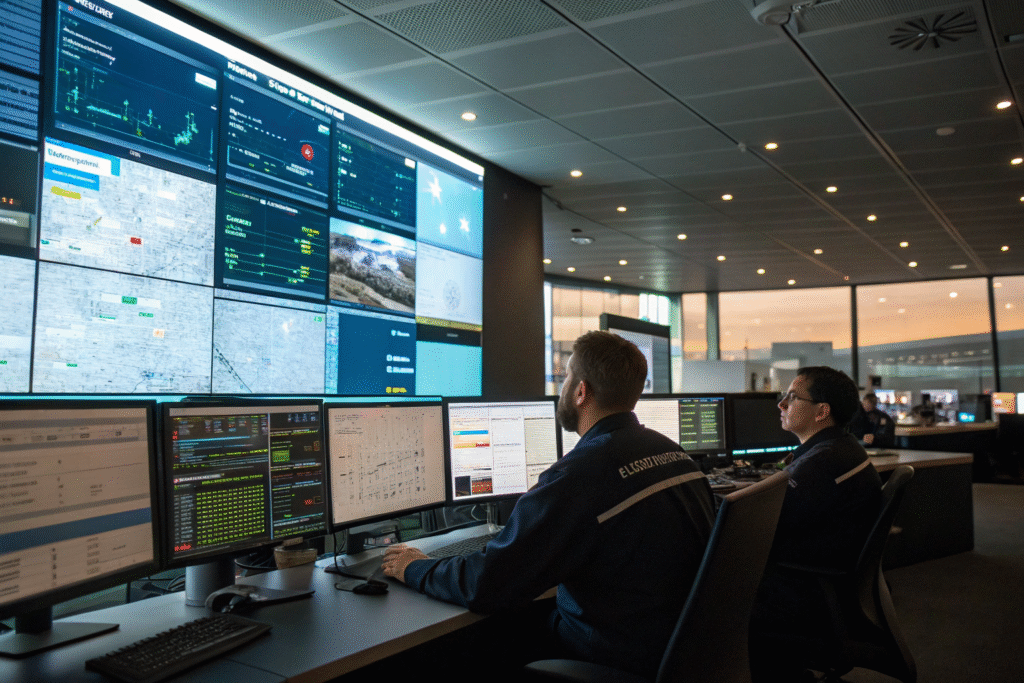
How do forwarders react to disruptions?
Let’s take a moment to reflect together. If a storm closes a port, forwarders reroute cargo through alternative terminals. Platforms like MarineTraffic and Project44 give live updates that help forwarders act quickly. You might be wondering what this means for you—it means your goods still arrive on time, even when problems occur.
Why is cargo insurance important for supply chain stability?
You might be wondering if insurance is really necessary. The answer is yes. According to Allianz Trade, cargo theft and damage cost billions each year. Let’s take a moment to think this through together: when forwarders arrange insurance, your supply chain remains financially protected, no matter what happens.
How Do Freight Forwarders Lower Costs in Supply Chains?
One of the biggest concerns for businesses is cost. You might be asking yourself, “How do forwarders help me save money?”
Freight forwarders lower costs by negotiating bulk carrier rates, consolidating cargo, and reducing hidden fees. What needs to be emphasized here is that cost savings strengthen competitiveness in global markets.

How do bulk contracts reduce shipping rates?
Let’s take a moment to think this through together. Forwarders book space in large volumes, which lowers per-unit freight costs. According to Drewry Shipping Consultants, bulk negotiations give businesses access to competitive rates they couldn’t secure alone. You might be wondering how this affects your business—it means consistent pricing and fewer financial surprises.
Why do transparent quotations matter?
You might be wondering if freight pricing is always clear. Unfortunately, some providers add hidden fees for port handling or customs. Let’s reflect on this together: GeeseCargo uses transparent models, referencing sources like FIATA to keep quotes honest. What needs to be emphasized here is that knowing every cost upfront helps you plan with confidence.
How Do Freight Forwarders Enhance Supply Chain Visibility?
Visibility is one of the biggest challenges in global trade. You might be wondering, “Why can’t I always see where my goods are?” The answer is that without coordination, information is scattered.
Freight forwarders enhance visibility by providing tracking tools, sharing proactive updates, and integrating digital platforms. What needs to be emphasized here is that visibility builds trust and makes supply chains predictable.

How does real-time tracking support planning?
Let’s take a moment to think this through together. Real-time updates from platforms like FourKites and Flexport allow forwarders to share accurate shipment locations. You might be wondering why this matters—it means you can adjust inventory and staffing based on actual arrival times.
Why are proactive updates valuable for clients?
You might be wondering if updates only happen when problems occur. The truth is, proactive communication builds confidence. According to DHL Global Forwarding, proactive visibility is one of the top factors in client satisfaction. Let’s take a moment to reflect together: when your forwarder updates you before you even ask, you gain peace of mind.
Conclusion
Let’s take a moment to think this through together: freight forwarding is not just a background service—it is a central force in supply chains.
Freight forwarders influence supply chains by improving efficiency, reducing risks, lowering costs, and enhancing visibility. What needs to be emphasized here is that without strong forwarding support, supply chains become unpredictable and costly.
By partnering with GeeseCargo, you gain not just a logistics provider but a strategic partner who ensures your supply chain remains stable, competitive, and future-ready.
